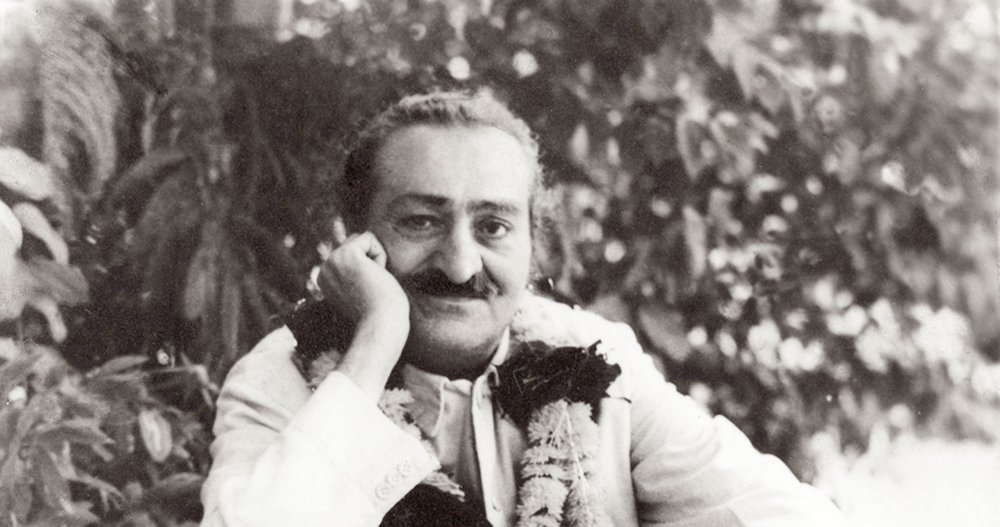
1960s
Baba became concerned with the increasing drug culture in the West.
Meher Baba stated that drug use was spiritually damaging and that if enlightenment were possible through drugs then "God is not worthy of being God". Baba stated that LSD is "harmful physically, mentally and spiritually".
In 1962, Baba gave one of his last public functions, a series of meetings he called The East-West Gathering. At these meetings, in which his western followers were invited to meet his Indian disciples, Baba gave darshan to many thousands of people despite the physical strain this caused him.
In the mid-1960s Baba became concerned with the increasingly prevalent drug culture in the West and began a correspondence with several Western academics, including Timothy Leary and Richard Alpert, in which he strongly discouraged the use of all hallucinogenic drugs for spiritual purposes.
In 1966 Baba's responses to questions on drugs were published in a pamphlet titled God in a Pill? Meher Baba stated that drug use was spiritually damaging and that if enlightenment were possible through drugs then "God is not worthy of being God".
Meher Baba instructed some of his young Western disciples to spread this message; in doing so, they increased awareness of Meher Baba's teachings among the young during this period.
In an interview with Frederick Chapman, a Harvard graduate and Fulbright scholar who met Baba during a year of study in India, Baba stated that LSD is "harmful physically, mentally and spiritually", and warned that "the continued use of LSD leads to madness or death".
On this basis, an anti-drug campaign was initiated by Baba lovers in the United States, Europe and Australia.
Although the campaign was largely unsuccessful, it created a wave of new followers, and some of Baba’s views found their way into academic debate on the merits and dangers of hallucinogens.
From the East-West Gathering of 1962 onward, Baba's health steadily deteriorated. Despite the physical toll it took on his body, he continued to undergo long periods of seclusion and fasting. In late July 1968, Baba completed a particularly taxing period of seclusion and stated that by then his work was "completed 100% to my satisfaction". At this point he was using a wheelchair. Within a few months his condition had worsened and he was by then bedridden. His body was wracked by intense muscular spasms that had no clear medical origin. Despite the care of several doctors the spasms grew progressively worse.
On 31 January 1969, Meher Baba died, conveying by his last gestures, "Do not forget that I am God." In time his devotees called the anniversary of his death Amartithi (deathless day). Meher Baba's body lay in state at his samadhi at Meherabad. Covered with roses, and cooled by ice, his body was kept available to the public for one week before its final burial. Before his death, Meher Baba had made extensive preparations for a public darshan program to be held in Poona. His mandali decided to proceed with the arrangements despite the physical absence of the host. Several thousand attended this "Last Darshan", including many hundreds of people from the United States, Europe, and Australia.
